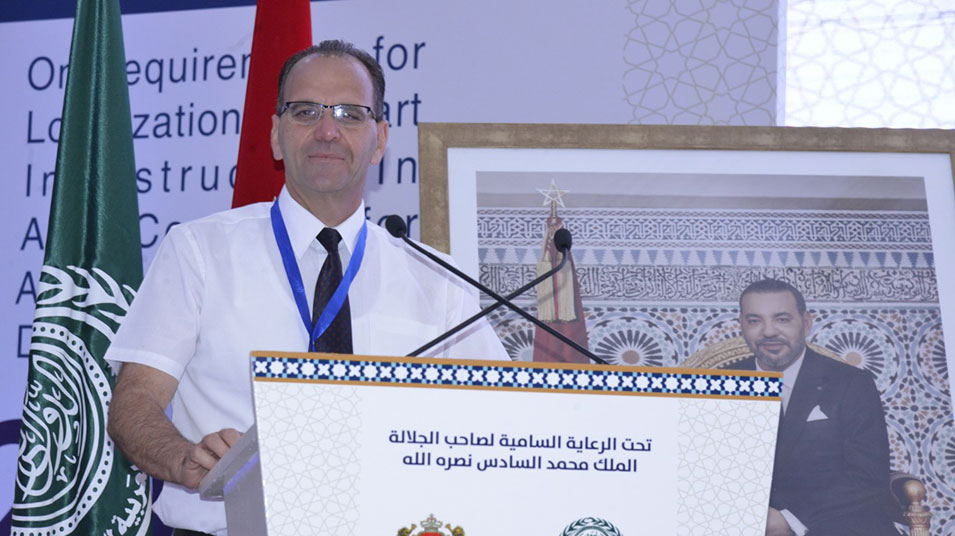Public Administration professor discusses localizing 2030 SDGs in annual conference
Birzeit University’s assistant professor of public administration Ayman Zaru participated in the 19th Annual Conference of the Arab Organisation for Administrative Development (ARADO) themed “Requirements for Smart Infrastructure Localization in Arab Countries to achieve the 2030 Agenda for Sustainable Development,” held in Marrakesh, Morocco, on October 17–18, 2019.
The conference gathered ministry representatives and experts in sustainable development from fifteen Arab countries―including Algeria, Lebanon, Tunisia, Qatar, Egypt, Saudi Arabia, Morocco, Sudan, Iraq, the United Arab Emirates, Kuwait, Palestine, Libya, Oman and Mauritania―and from a number of European countries.
The conference encouraged Arab governments to use their potential and capabilities to strengthen their economies over the next ten years. Held under the patronage of King Mohammed VI of Morocco, it discussed key issues related to efforts to increase the competitiveness of Arab goods and to improve the performance of Arab economies amidst the evolving needs of a globalized world.
The sessions focused in particular on ways to implement the 2030 Sustainable Development Goals (SDGs) through joint efforts among Arab countries. Discussed were methods to enhance effectiveness in the implementation of sustainable development plans and related programs in the Arab region, tools to take advantage of data networks and highly developed technologies and the means to facilitate their application, as well as ways to utilize space technology to improve the quality of life through e-governance initiatives. The conference also discussed the general data-protection regulations that are necessary when establishing and operating smart infrastructure.
Zaru presented a paper that dealt with the challenges that prevent the implementation of SDGs 2030 in the special Palestinian context under the Israeli occupation, because Palestinian activities and projects must abide by the stipulations that are posed by the Oslo Agreements. He defined the difficulties Palestinians are faced with under the current situation and explained how they affect the implementation and localizing of the international agendas in Palestine, questioning how sustainable development can be achieved while under military attack or recovering from wars, making efforts to pose resistance to subjugation and colonization, and lacking independence and sovereignty. “Palestinians,” Zaru asserted, “must consider other priorities, most importantly attaining their freedom and liberty.”







